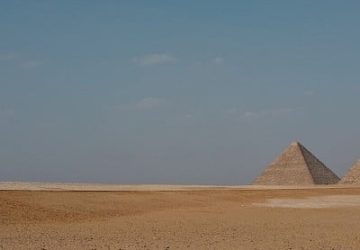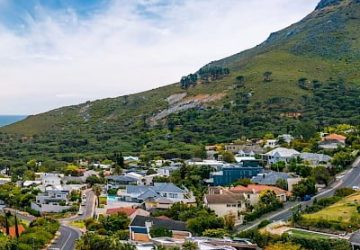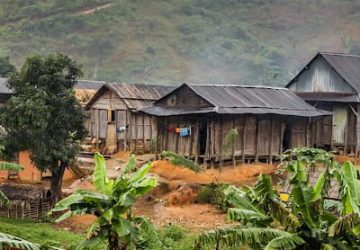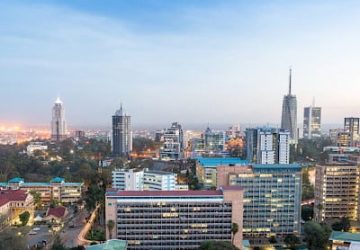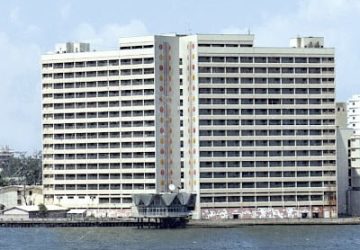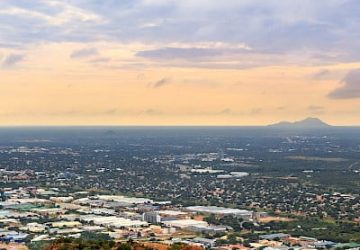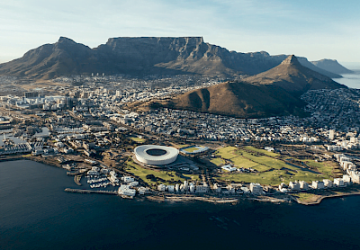Key Facts
Official Name: Republic of Zimbabwe
Capital: Harare
Continent: Africa
Population: 16 million
Official Languages: Chewa, Chibarwe, English, Kalanga, Koisan, Nambya, Ndau, Ndebele, Shangani, Shona, sign language, Sotho, Tonga, Tswana, Venda and Xhosa
Religions followed: Protestantism, Roman Catholicism, Ethnic religion
Currency: United States dollar (US$), Euro (€), South African rand (R), Botswana pula (P), Pound sterling (£), Indian rupees (₹), Australian dollars (A$), Chinese Renminbi (元/¥), and Japanese yen (¥)
Time Zone: GMT + 2 hours
Country Tel Code: +263
Living in Zimbabwe
Throughout Zimbabwe’s history runs the struggle for independence, land and power. After independence from Britain in 1980 veteran President Robert Mugabe dominated the country’s political scene for almost four decades. The southern African country is landlocked, bordered by Zambia in the north, Mozambique in the east, Botswana in the west and South Africa in the south. Since 2000, Zimbabwe has struggled to feed its own people though it once was the bread basket of the region. This is because of severe droughts and the effects of a land reform programme which saw the seizure of white-owned farms redistributed to landless black Zimbabweans which led to sharp falls in production.
Zimbabwe’s economy is cash-strapped and impoverished and faces severe challenges. Endemic are unemployment and poverty. Political strife and repression are commonplace. In search of work in neighbouring countries like South Africa, many Zimbabweans have left the country.
Politics in Zimbabwe
Zimbabwe has a presidential system of government and is a republic. With the adoption of a new constitution after a referendum in March 2013, the semi-presidential system was abolished. An upper chamber, the Senate, was reinstated under the constitutional changes in 2005. The lower chamber of Parliament is the House of Assembly. The dominant political party in Zimbabwe since independence has been President Robert Mugabe’s Zimbabwe African National Union – Patriotic Front (commonly abbreviated ZANU-PF). Mugabe, the then-prime minister in 1987 revised the constitution. To form an executive president, a Presidential system he abolished the ceremonial presidency and the prime ministerial posts. Since independence his ZANU party has won every election. The second-placed party, Edgar Tekere’s Zimbabwe Unity Movement, won only 20% of the vote in the 1990 election.
Most opposition parties during the 1995 parliamentary elections, including the ZUM, boycotted the voting, resulting in a near-sweep by the ruling party. In 2000, when the opposition returned to the polls they won 57 seats, only five fewer than ZANU.
Economy of Zimbabwe
The main foreign exports of Zimbabwe are minerals, gold and agriculture. A key role is played by tourism in its economy. With some of the world’s largest platinum reserves, the mining sector remains very lucrative. Discovered in 2006, the Marange diamond fields are considered the biggest diamond find in over a century. Though revenues from the field have the potential to improve the fiscal situation of the country considerably, almost all have disappeared into the pockets of army officers and ZANU-PF politicians. The Marange field is one of the largest diamond producing projects in the world in terms of carats produced. In 2014 it was estimated to have produced 12 million carats worth over $350 million. South Africa’s biggest trading partner on the continent is Zimbabwe.
While state enterprises are strongly subsidised taxes and tariffs are high for private enterprises, Tourism has been failing in recent years though it is an important industry for the country.
Buying or Renting Property in Zimbabwe
Space and sunshine are top on the list of attractions for expats. Zimbabwe is blessed with these and are the biggest pair of attractions for expats who invariably hail from countries where the norm is compact homes, postage stamp sized gardens and perennially grey skies.
Services – water, electricity and connectivity are high on the list of concerns. These are taken for granted In first world countries but in Zimbabwe they are a tad more problematic. A property with a good borewell, an inverter system or generator and solar geysers would be a big plus. If the property is in an area served by fibre optics it would be seen as a big positive.
Security is another consideration. Perimeter security, alarm systems, guard patrols and even safe rooms are important requirements.
For those with children proximity to an International school is important. Expats are happy sending their children to the international school in Mount Pleasant, making this suburb particularly popular. It is perfectly legal for foreigners to own a house in Zimbabwe providing the funds are brought in from an external account to pay for it.
Visa and Immigration
Writer Relocations provides visa and immigration services for Zimbabwe and many other countries across the globe. You can get in touch with our executives for further assistance.
Schools in Zimbabwe
In Zimbabwe schools are either managed by the government, churches, mining companies, councils, trust boards, or privately. You can expect fees of around 15,000 USD per annum in the private sector with most international schools found in the capital city, Harare. In the Zimbabwe education system a child will spend seven years at the primary level, six years at secondary school before entry into university or college. Children go to primary school at the age of 6. Then around the age of 13 they proceed to secondary school. Education encompasses 13 subjects at primary school level and national exams takes place at the end of Grade 7 in Maths, English, Shona, and a general exam. Students take two examinations at secondary school, the Ordinary Level (O Level) at age 16 and the Advanced Level (A Level) at age 18. Following their examinations, Zimbabwe’s seven universities will be joined by many of these students.
Weather in Zimbabwe
The rains come principally in December, January, February and March in Zimbabwe. The more north you are, the earlier the precipitation arrives and the later it leaves. The lower-lying western areas receive less rainfall than the higher eastern areas. Most of the rain is gone by April and May leaving a verdant setting, which is starting to dry out. The night-time temperatures start to drop especially in more southerly and higher locations. Don’t forget to bring some warmer clothes, in case you want to spend a night outside since the nights in June, July and August become much cooler. This is the start of the ‘peak season’ for Zimbabwe – days are often cloudless and game sightings continually increase. The temperatures rise once again into September and October. Mana Pools – Zimbabwe’s lower-lying rift valley can get very hot in October. As Zimbabwe’s wildlife concentrates around the limited water sources during this time, you’ll see some fantastic game.
Contact Us for Moving into, or out of Zimbabwe
We specialize in International Moves and have over 3000 corporate clients worldwide.
Writer Relocations has partnerships with moving companies across Austria to take care of your move. Call Us @022-334-91787 or request a quote.
You may also want to check out the Case Studies on International Relocation, along with the FAQs, and Moving Tools & Tips that we have put together for the best moving and packing experience.
Do read our Blog for tips and articles on how to make your moving experience smoother.
Why have 500,000 customers just like you
moved with Writer Relocations?
75+
Years of exceptional
and customised moving services, which has enabled 3000 corporate customers and Fortune 500 companies to efficiently relocate employees to find new homes, new communities, and new experiences.
16000+
Annual moves
and 12 Million pounds of shipment that we handle through an untiring focus to deliver services, solutions, and expertise that respond to the needs of our customers across the globe.
500+
Professionals & experts
with 360 partners in 190 countries who guide you at every step and seamlessly coordinate all the facets of the relocation process.
Read what people like you say about packing and moving with Writer Relocations.
Your Promise, Delivered
““Writer Relocations’ service was exceptional from the beginning. We started communicating for the clearance of goods in Mumbai. very timely communication and showed up right when they said they would, and worked hard, never slowing down. Writer Relocations came on time and did their job. They were fast, friendly, and very careful with our items while unpacking the stuff. I give my thanks to Writer Relocations for their wonderful support and timely operations. Thanks for everything and I wish good luck for Writer Relocations’ future…I will definitely use them next time I move. I would rate the overall experience with Writer Relocations as a 4.6 out of 5 based on the service that they have provided to me for clearing the material in India. All in all, a great experience.””
Ramdas Chandani, Moved from USA to Mumbai.

